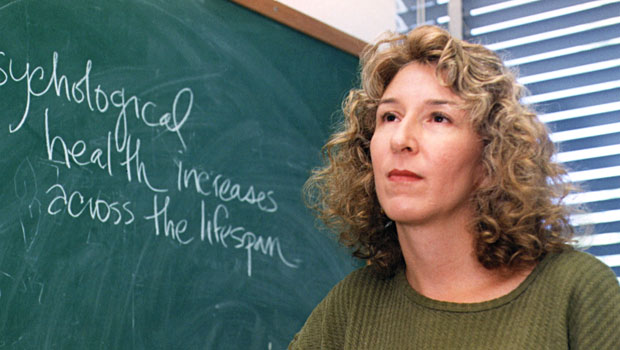A study by California State University, Fresno psychology professor Dr. Contance J. Jones that shows people often get better adjusted as they grow older is gaining national attention.
Jones’ work with three longitudinal studies that have tracked men and women over a 50-year period demonstrates that being productive, having good interpersonal relationships and behaving compassionately toward others are signs of psychological health and can improve as we age.
The study, “Developmental Paths of Psychological Health From Early Adolescence to Later Adulthood,” was published in the June issue of Psychology and Aging of the American Psychological Association, and has been reported by the New York Times, the Washington Post, National Public Radio, Knight Ridder newspapers, and various health and science publications and websites.
Jones, who was lead author, and co-author Dr. William Meredith, a psychologist at the University of California at Berkeley, examined the psychological health of 236 participants of the Berkeley Growth Study, the Berkeley Guidance Study and the Oakland Growth Study in an effort to understand the life span development of psychological health.
Jones began working with these studies in 1990 while a postdoctoral researcher at Berkeley prior to coming to Fresno State in 1993 as an assistant professor in the Psychology Department. She is currently an associate professor here.
Funded by the National Institute of Mental Health, Jones’ project stemmed from a longstanding interest in the stability of personality and psychological health during a person’s life span.
She said the Berkeley longitudinal studies provide data for various studies such as Jones’. The participants began the study in 1929 and were interviewed in childhood, adolescence, and three times in adulthood.
Each participant’s measure of psychological health was determined by psychologists’ ratings of 73 different aspects of personality based on those extensive interviews during adolescence and adulthood.
Questions included: “Is she/he a dependable and responsible person? Is she/he productive in life? Does he/she value independence and autonomy and also enjoy interacting with others?”
“We found from analyzing our three groups that psychological health steadily increased from 30 years of age to 40, 50 and 62 years of age,” said Jones. “There were no differences found between the sexes either. While, of course, people are different and some individuals had dramatic increases where others had little or no increases, the average participants showed moderate increases in psychological health in adulthood.”
The study also shows that even not-so-healthy teenagers can become healthier as they age.
“Those with greater psychological health in adolescence tended to be psychologically healthier in adulthood than those with less psychological health in adolescence,” said Dr. Jones. “Yet, even those with few signs of psychological health in adolescence did eventually show improvement, beginning in adulthood and attaining more as they got older.”
Jones earned a bachelor’s degree in psychology at Berkeley and a master’s and Ph.D. at The Pennsylvania State University.
The American Psychological Association (APA), in Washington, DC, is the largest scientific and professional organization representing psychology in the United States and is the world’s largest association of psychologists. APA’s membership includes more than 159,000 researchers, educators, clinicians, consultants and students.
Through its divisions in 53 subfields of psychology and affiliations with 59 state, territorial and Canadian provincial associations, APA works to advance psychology as a science, as a profession and as a means of promoting human welfare.





